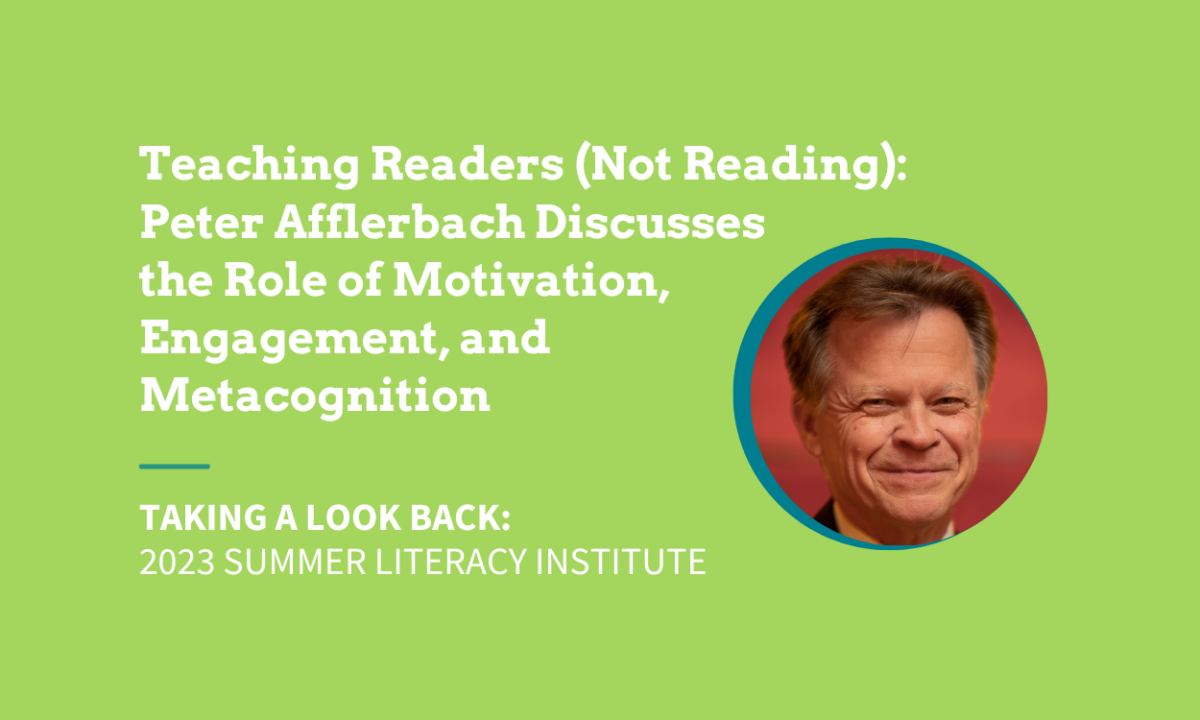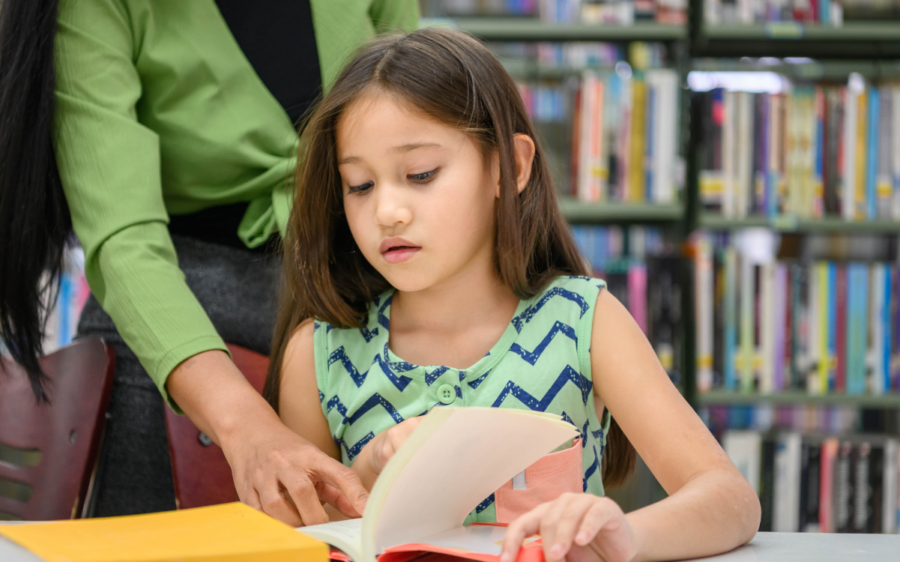Researcher, Dr. Peter Afflerbach, concluded The Center for Reading Recovery and Literacy Collaborative’s Summer Literacy Institute, Phonics and More: Science Aligned Teaching, and helped teachers think about how to move beyond skills and strategies for reading instruction that focuses on readers rather than reading. He spoke of the importance of including motivation, engagement, and metacognitive strategies, that are supported by research into literacy instruction.
Motivation and Engagement
Afflerbach got teachers thinking about the implications of motivation and engagement for successful literacy development. Reading motivation describes students’ thoughts and feelings about reading. Reading motivation and engagement have been found to contribute to reading achievement across grade levels (Barber & Klauda, 2020).
The SMILE Model incorporates the different facets that contribute to motivation and engagement:
Social Belonging: how the acts of reading are shared and contribute to students feeling like part of a reading community. Afflerbach noted how there is a human need to be a part of a group, and this feeling contributes to reading success.
Me: the feeling of self-efficacy and positive thoughts of oneself as a reader. When readers, including those who are struggling, have successful experiences with reading, there are increases in self-efficacy, which leads to more effort to comprehend during reading, even when it feels challenging. Children have to believe that they can succeed at reading tasks.
Importance: the understanding of the importance of reading in one’s life, both in and out of school.
Liking: The affinity for reading and writing. When children enjoy reading and writing, they are more likely to choose to read and write. When children read and write voluminously, reading and writing success improves.
Engagement: students’ active involvement in reading. This is a direct product of motivation. It is the result when social belonging, self-efficacy, a sense of importance, and affinity for literacy tasks are developed. Children want to return to things that feel fun, important, and safe.
How can teachers develop motivation and engagement?
Afflerbach has some suggestions:
- Increase time spent reading and writing.
- Use interesting and diverse texts.
- Provide students with choices of reading material.
- Teach and encourage discourse about reading.
- Ensure students have appropriately difficult texts at all reading levels.
- Routinely talk about why you are engaging students in reading tasks. Make relevant connections to their reading lives.
Metacognition
Metacognition is linked to high reading outcomes (Borkowski & Turner, 1990, Guthrie & Wigfield, 2020). However, as Afflerbach explained, they are rarely identified as key learning outcomes in standards and curricula. Teachers can help children develop reading metacognition by helping them internalize questions such as:
- Does it make sense?
- How do I know?
- Is there a problem?
- What is the problem?
- Can I fix it?
- How can I fix it?
- Did I fix it?
- Can I get back on track?
Children have the right and responsibility to read critically, and developing their metacognition as readers will help them to do so.
Conclusion
When children are motivated, their engagement with literacy grows. When they develop metacognitive thinking as readers, they learn to read critically and build self-efficacy. Teachers play a pivotal role in children’s literacy development and will see success when motivation, engagement, and metacognition have a place in their instruction.

Curious for more?
Inspire motivation and engagement in your own students with one of our upcoming literacy professional learning opportunities!





